Publications Library
Type
Topic
Language
Region
Country
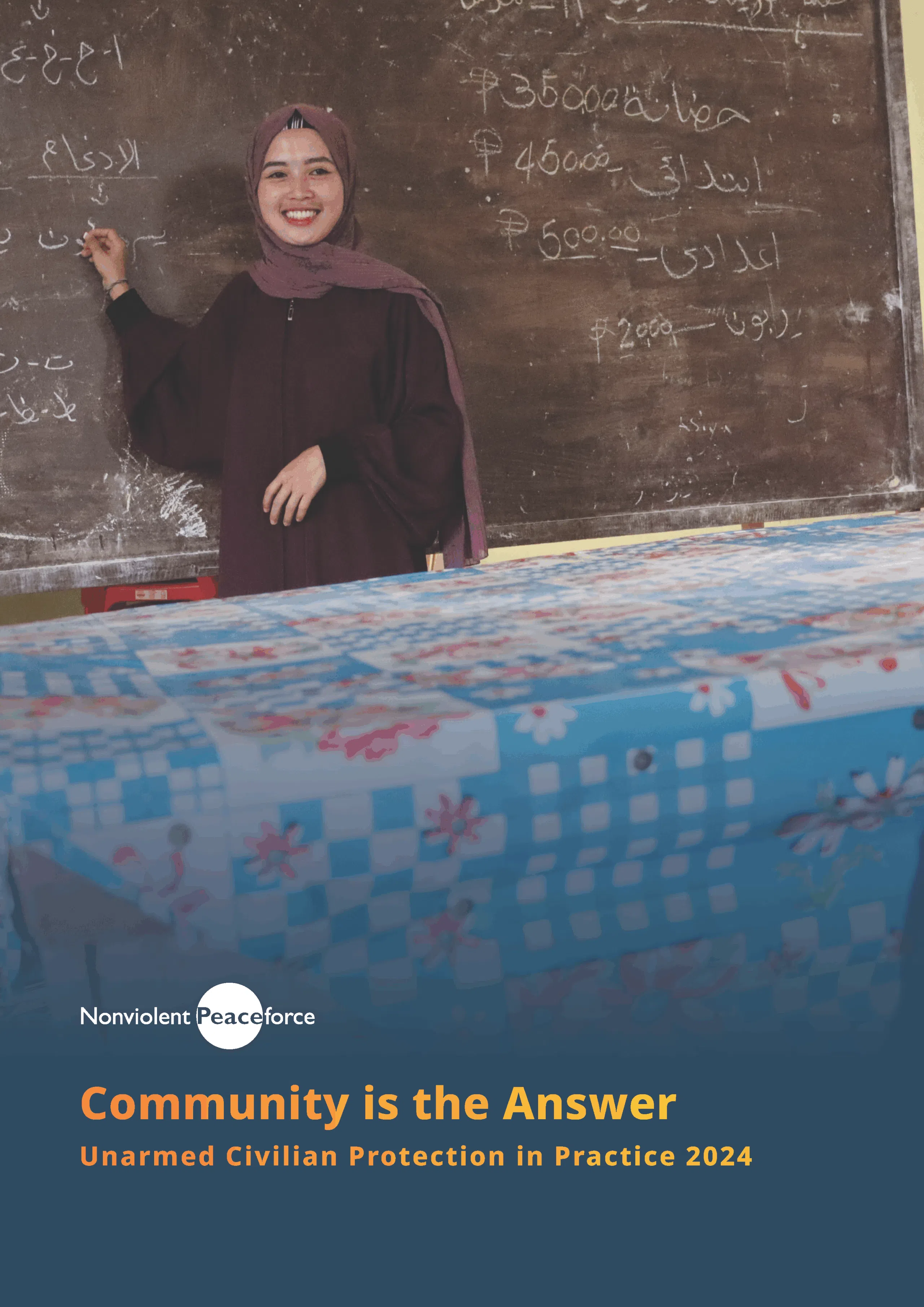
2024
Community is the Answer | Unarmed Civilian Protection in Practice 2024
Extended Annual Report
Amidst escalating violence against civilians, it is critical that we recognise examples of possibility and hope. This publication contains testimonies of fortitude, of lives saved, of relationships repaired—always amidst difficulty and violence, but pursued nevertheless. We hope these actions and insights remind us that prevention, protection, and repair are possible, of the importance of investing in peace and protection to save lives, and as inspiration for future action.
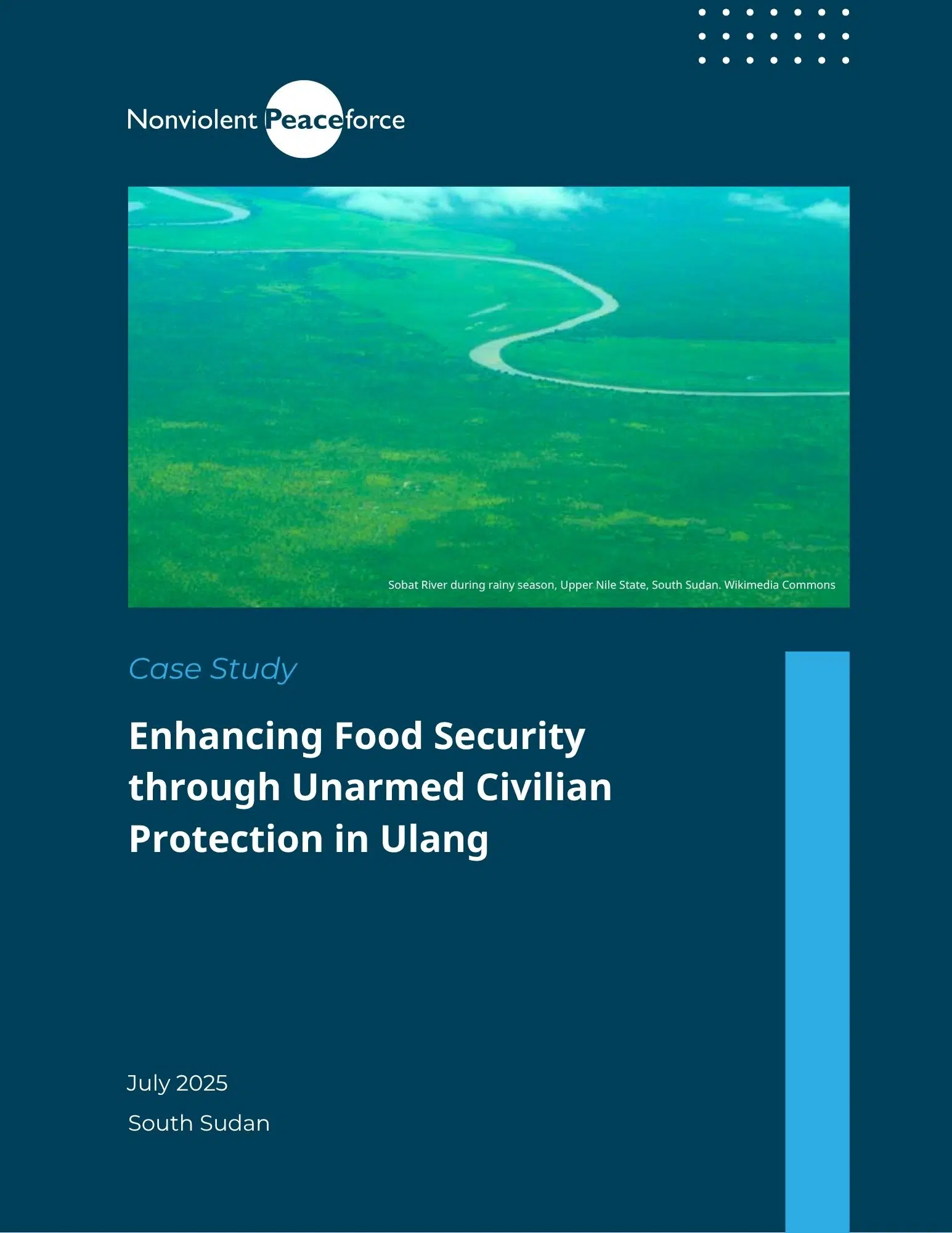
July 2025
Enhancing Food Security through Unarmed Civilian Protection in Ulang
Case Study
In Greater Ulang, an area with fertile land and accessible river water, folks avoid engaging in agricultural practices out of fear for their safety. Consequently, the protection issues arising from generalized insecurity perpetuate a chronic cycle of food insecurity that can extend beyond years and generations. NP has been working alongside communities to address these challenges in Greater Ulang.
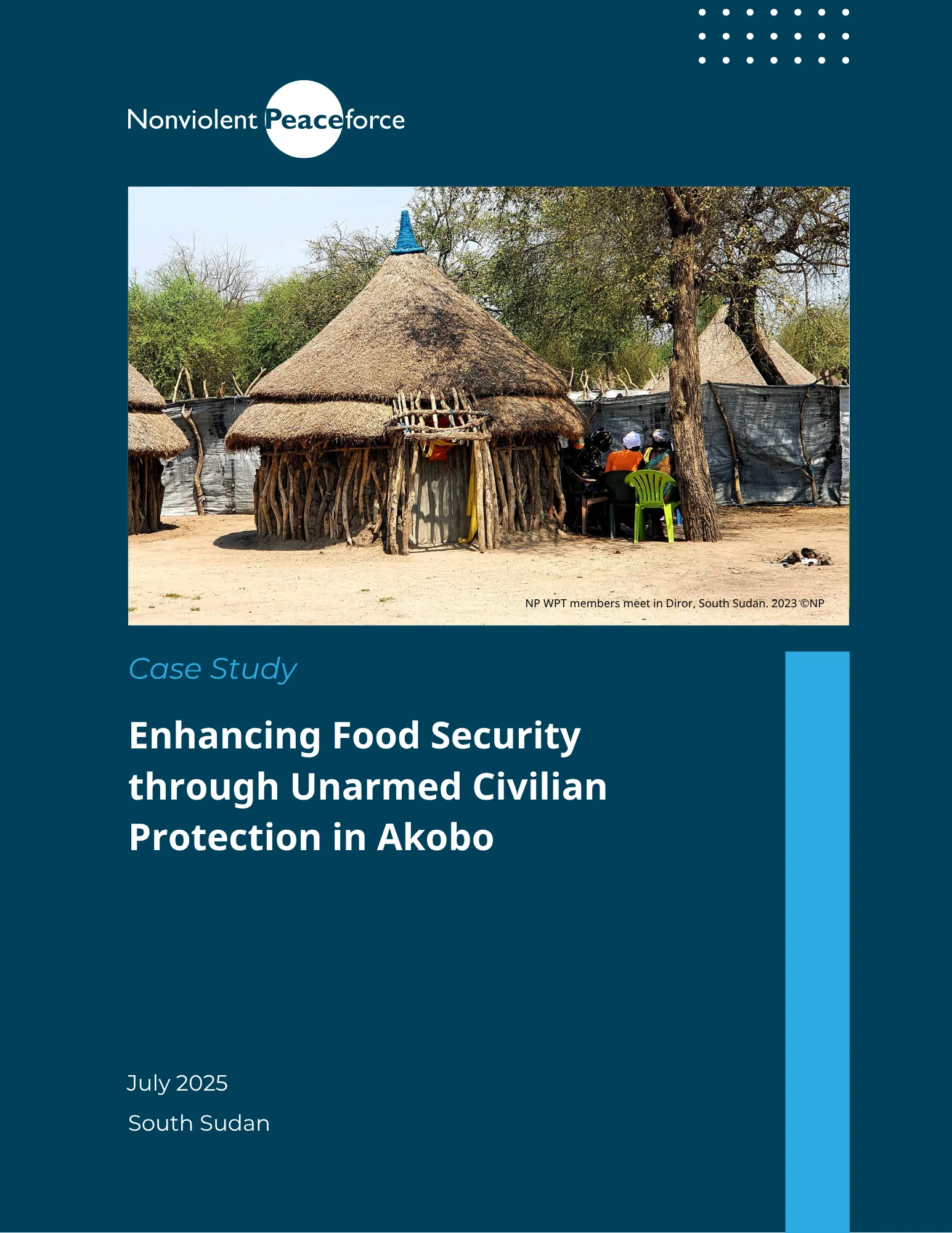
July 2025
Enhancing Food Security through Unarmed Civilian Protection in Akobo
Case Study
In Akobo County, the outbreak of conflict at a central food distribution site resulted in the complete suspension of the distribution site. Individuals, families, and communities uninvolved did not receive their food assistance as expected. Our staff facilitated a community security meeting in Diror to understand the status of the relationship between the Kaikuiny and Diror communities and identify if any strategies needed to be implemented to mitigate any potential violence during future planned food distributions.
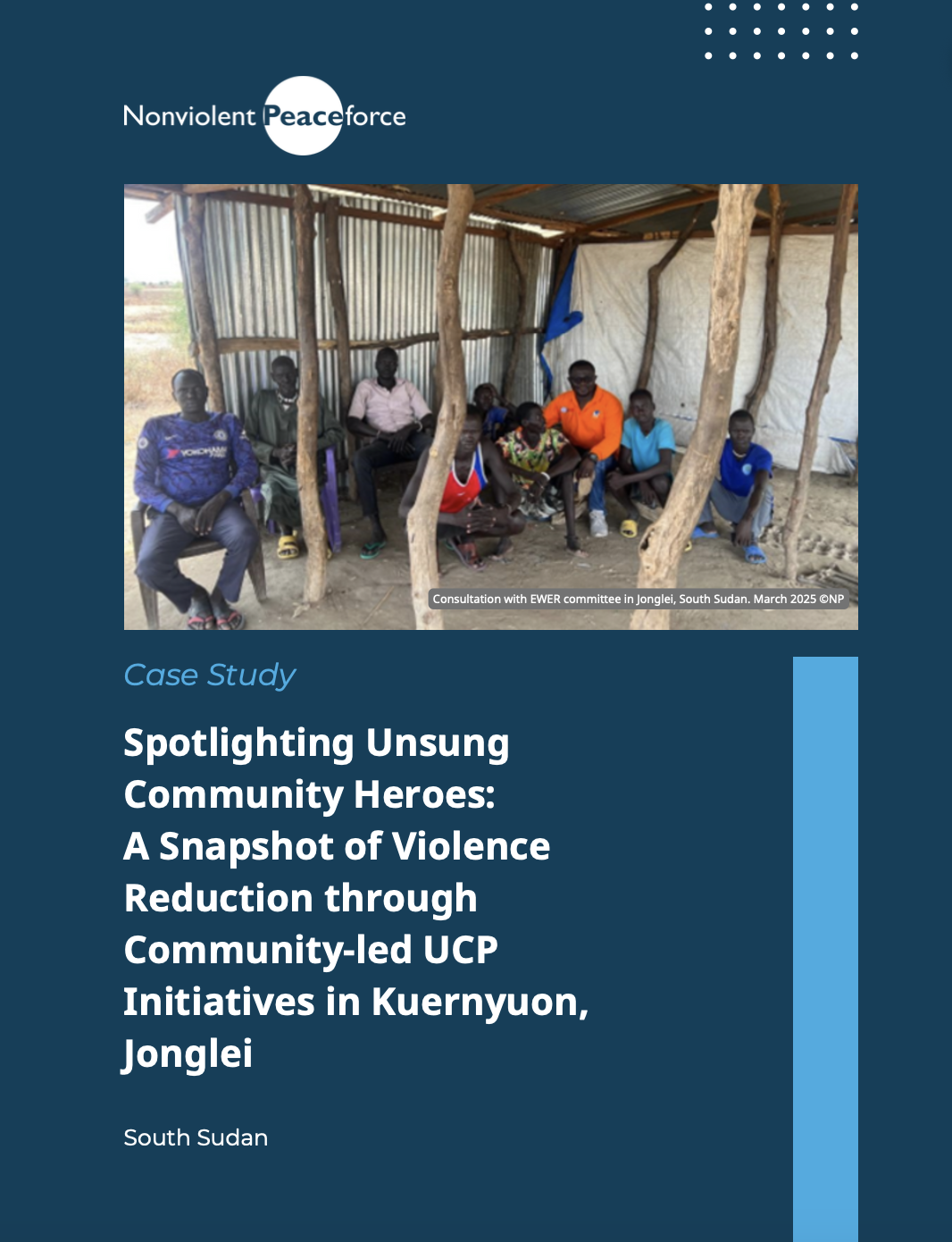
July 2025
Spotlighting Unsung Community Heroes: Violence Reduction through Community-led UCP Initiatives in Kuernyuon, Jonglei
Case Study
Through the leadership of local actors and the support of NP, the community of Kuernyuon in Buong Payam, Jonglei State, once plagued by child and women abductions and frequent cattle raids from neighboring communities, has begun a new chapter. Here's how they're using grassroots peacebuilding efforts to redefine safety and community protection.
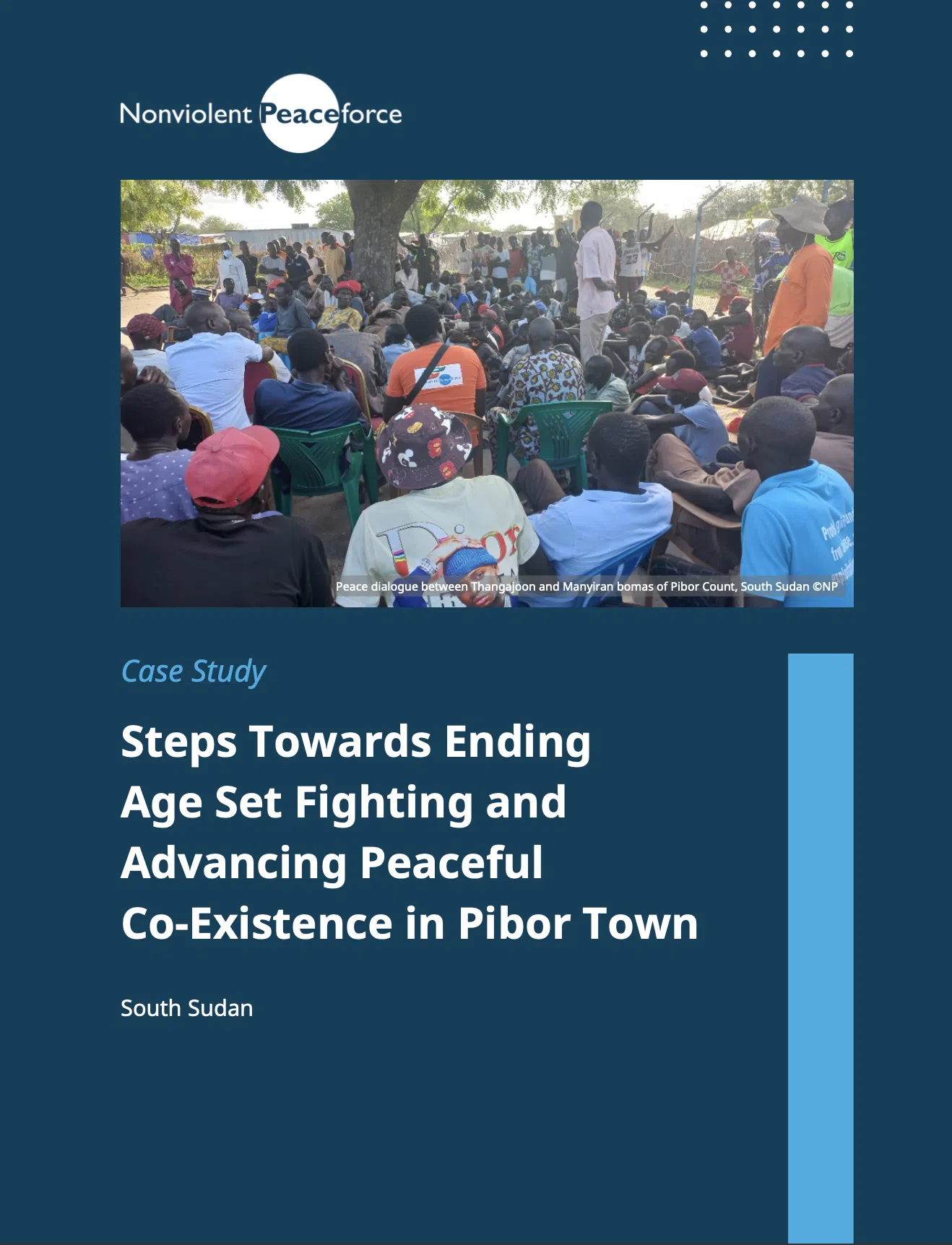
July 2025
Steps Towards Ending Age Set Fighting and Advancing Peaceful Co-Existence in Pibor Town
Case Study
Learn how NP is supporting Pibor Town as the town takes steps towards ending age set fighting and advancing peaceful co-existence.
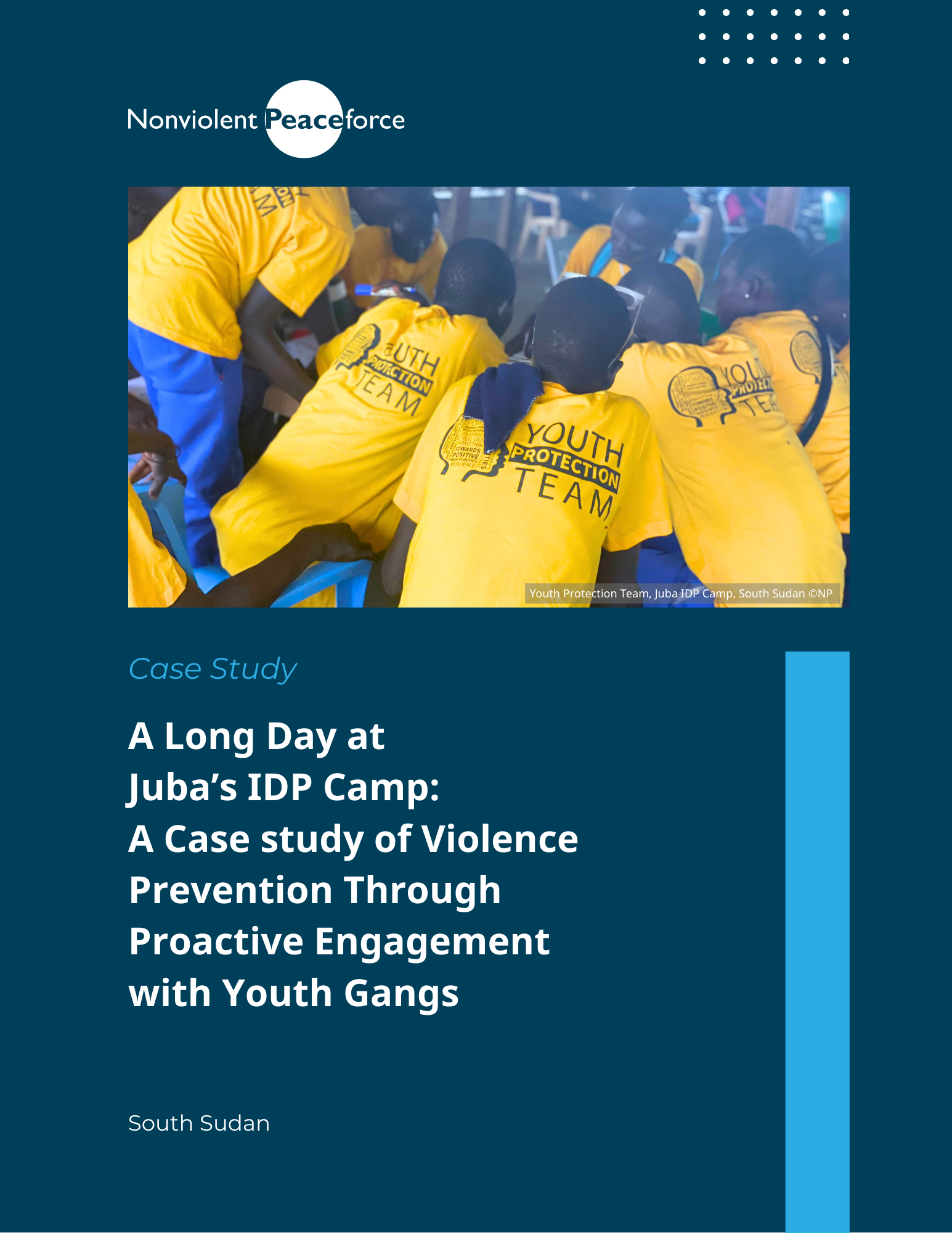
May 2025
A Long Day at Juba’s IDP Camp: A Case study of Violence Prevention Through Proactive Engagement with Youth Gangs
Case Study
Youth in Juba’s IDP camp helped prevent violence against civilians amid rising tensions. Members of the camp’s Youth Protection Teams, trained in nonviolence, drew on long-standing relationships to directly intervene and de-escalate the situation. Their actions prevented further violence and highlighted the impact of community-led protection and unarmed civilian strategies.

October 2024
Intergenerational Violence in South Sudan Snapshot on Pibor
Programme Brief
The Greater Pibor Autonomous Area (GPAA) of South Sudan has been deeply impacted by decades of violence. Tension among community members has escalated along generational lines defined by traditional ‘age sets’, often resulting in widespread intra-communal violence.

January 2024
Sustaining Support: Renk, South Sudan
Programme Brief
As the conflict in Sudan spreads southwards, the devastating impact on civilians continues to escalate and force people to seek sanctuary in South Sudan. This is resulting in an immense strain on resources, especially in Renk county, which is the first point of arrival for the majority of those displaced. Without any political solution to the conflict in sight, decision makers need to identify and prioritise needs in order to continue supporting the hundreds of thousands of people desperately in need of basic services.
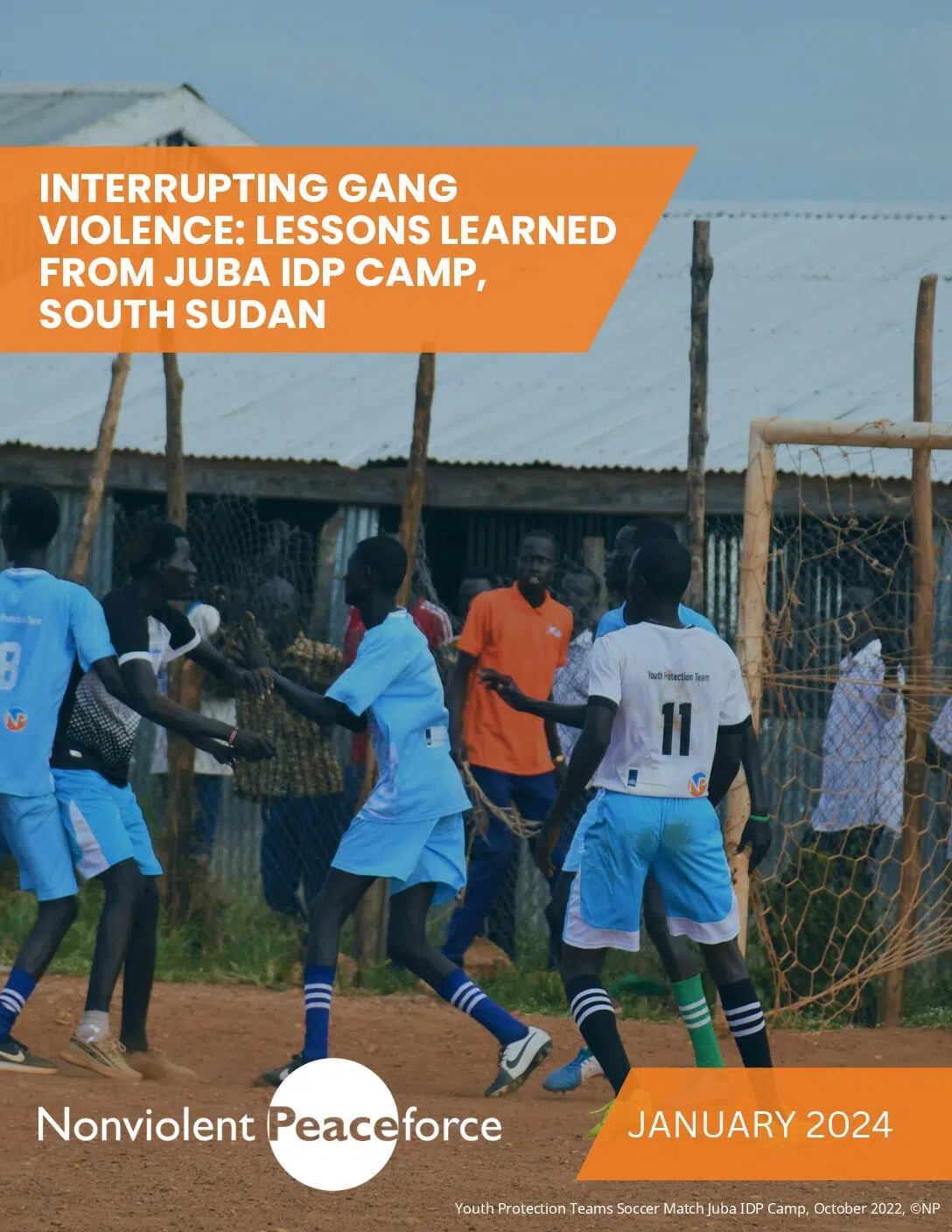
January 2024
Interrupting Gang Violence: Lessons Learned From Juba IDP Camp
Case Study
Intergroup and gang violence is a major concern for South Sudanese communities, particularly those who reside in internal displacement camps. Following the withdrawal of the UN Mission in South Sudan as security actors from sites since 2020, youth groups – which self-identify as gangs – have emerged in greater numbers and become a major safety concern for communities. Violence including physical attacks resulting in injury and death, rape and sexual violence, looting and other forms of harassment have increased as gangs have gained membership numbers and strength.

December 6, 2023
Crisis Upon Crisis Conflict & Climate Induced Challenges in Rotriak
Programme Brief
In Rotriak, South Sudan, the extreme consequences of the global climate crisis and Sudan conflict are coalescing for all to see. The displacement crisis from Sudan is just one of many challenges afflicting the area and for the communities inhabiting Rotriak, life is a daily struggle to survive. This report identifies four critical dynamics in Rotriak: its sensitive location, insecurity, key protection concerns and community relationships.
